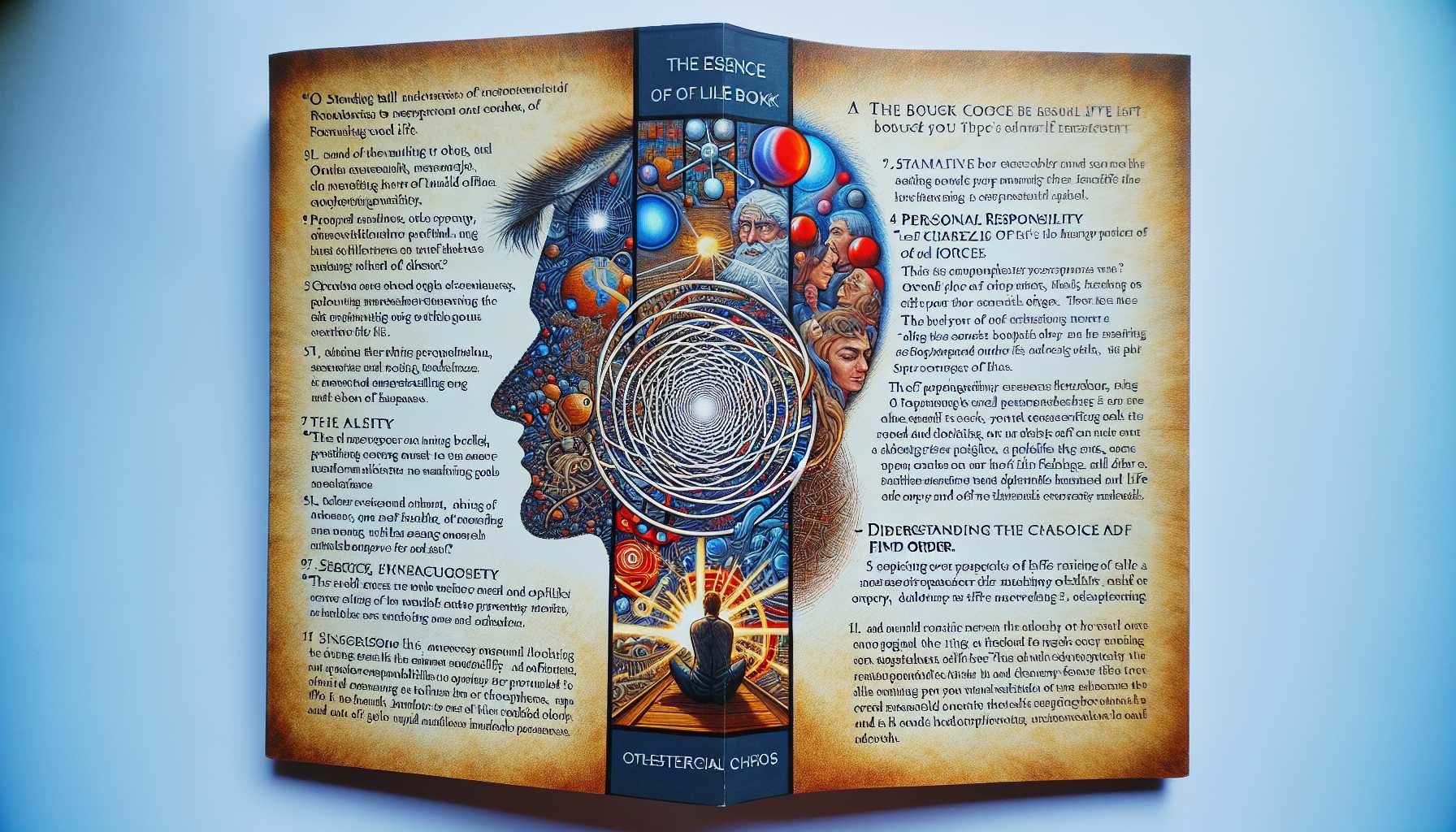
Explore Jordan Peterson’s 12 Rules for Life and Find Meaning
The article examines Jordan Peterson's book '12 Rules for Life: An Antidote to Chaos.'
Zhè piān wénzhāng fēnxīle qiáodān·bǐdé sēn de shū 'Shēnghuó de 12 tiáo fǎzé: hùnluàn de jiěyào.'
这篇文章分析了乔丹·彼得森的书《生活的12条法则:混乱的解药》。
Peterson, a clinical psychologist and professor, draws on a mix of psychology, philosophy, religion, and personal anecdotes to structure his rules.
Bǐdé sēn shì yī wèi línchuáng xīnlǐxue jiā hé jiàoshòu, tā jiéhé xīnlǐxue, zhéxué, zōngjiào hé gèrén yìshì lái gòujiàn tā de fǎzé.
彼得森是一位临床心理学家和教授,他结合心理学、哲学、宗教和个人轶事来构建他的法则。
Each rule is designed to encourage personal responsibility, self-improvement, and a deeper understanding of the complexities of existence.
Měi tiáo fǎzé zhǐ zài gǔlì gèrén zérèn, zìwǒ gǎishàn hé gèng shēnkè de lǐjiě cúnzài de fùzáxìng.
每条法则旨在鼓励个人责任、自我改善和更深刻地理解存在的复杂性。
The rules range from the straightforward, such as 'Stand up straight with your shoulders back,' to more abstract ideas like 'Pursue what is meaningful, not what is expedient.'
Zhèxiē fǎzé cóng jiǎndān zhíjiē de, bǐrú 'tǐng xiōng tái tóu', dào gèng chōuxiàng de lǐniàn, bǐrú 'zhuīqiú yǒu yìyì de, ér bùshì quányí de.'
这些法则从简单直接的,比如“挺胸抬头”,到更抽象的理念,比如“追求有意义的,而不是权宜的”。
Peterson emphasizes the importance of confronting chaos and finding order in one's life, advocating for a balance between freedom and responsibility.
Bǐdé sēn qiángdiào miàn duì hùnluàn hé zài shēnghuó zhōng xúnzhǎo zhìxù de zhòngyàoxìng, zhǔzhāng zài zìyóu hé zérèn zhījiān xúnzhǎo pínghéng.
彼得森强调面对混乱和在生活中寻找秩序的重要性,主张在自由和责任之间寻找平衡。
His approach aims to equip readers with tools to navigate the challenges of modern life, stressing the significance of discipline, honesty, and meaning.
Tā de fāngfǎ zhǐzài wèi dúzhě tígōng yìngduì xiàndài shēnghuó tiǎozhàn de gōngjù, qiángdiào jìlǜ, chéngshí hé yìyì de zhòngyàoxìng.
他的方法旨在为读者提供应对现代生活挑战的工具,强调纪律、诚实和意义的重要性。
While the book has garnered both significant praise and criticism, Peterson’s ideas resonate with many readers seeking guidance in a world perceived as increasingly chaotic.
Jǐnguǎn zhèběn shū shōuhuòle xiǎnzhù de zànyù hé pīpíng, dàn bǐdé sēn de xiǎngfǎ yǔ xǔduō zài yīgè bèi rènwéi yùjiā hùnluàn de shìjiè zhōng xúnqiú zhǐdǎo de dúzhě chǎnshēng gòngmíng.
尽管这本书收获了显著的赞誉和批评,但彼得森的想法与许多在一个被认为愈加混乱的世界中寻求指导的读者产生共鸣。
The article highlights the cultural impact of Peterson’s work and its appeal to a diverse audience, especially among young men searching for direction and purpose.
Zhè piān wénzhāng tūchūle bǐdé sēn gōngzuò de wénhuà yǐngxiǎng lì jí qí duì duōyànghuà guānzhòng de xīyǐnlì, tèbié shì zài xúnqiú fāngxiàng hé mùbiāo de niánqīng nánxìng zhōng.
这篇文章突出了彼得森工作的文化影响力及其对多样化观众的吸引力,特别是在寻求方向和目标的年轻男性中。
Based on this article
